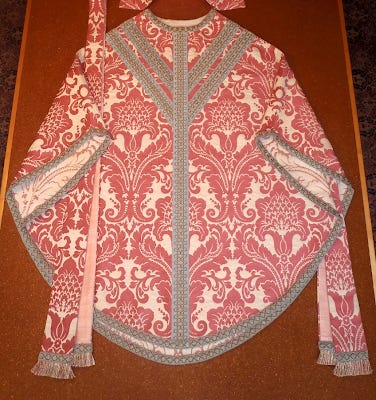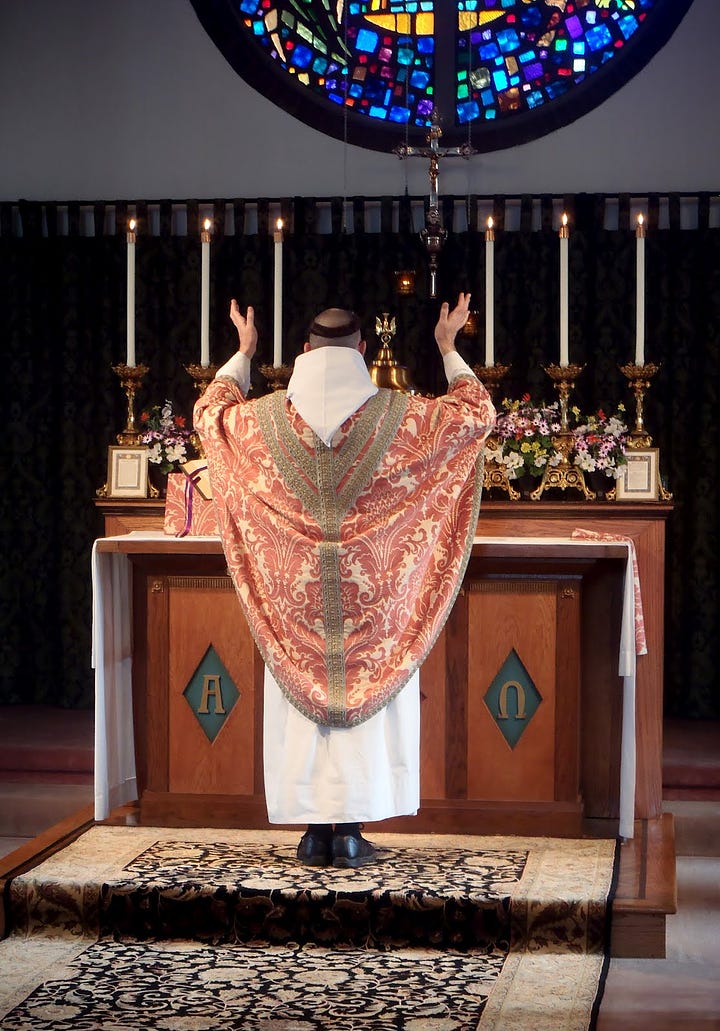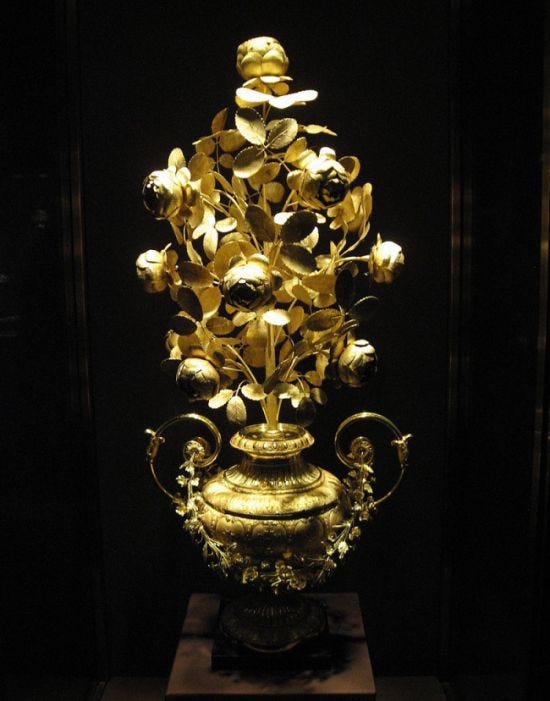Laetare Sunday and The Golden Rose
Laetare Jerusalem: et conventum facite omnes qui diligitis eam: gaudete cum laetitia, qui in tristitia fuistis: ut exsultetis, et satiemini ab uberibus consolationis vestrae. (Psalm) Laetatus sum in his, quae dicta sunt mihi: in domum Domini ibimus. Gloria Patri.
Rejoice, O Jerusalem: and come together all you that love her: rejoice with joy, you that have been in sorrow: that you may exult, and be filled from the breasts of your consolation. (Psalm) I rejoiced at the things that were said to me: we shall go into the house of the Lord. Glory be to the Father.
This past Sunday was the 4th Sunday of Lent otherwise known as Laetare Sunday. The vestments for this day are rose, as they are on Gaudete Sunday in Advent, and flowers may adorn the Altar. This day is called "Laetare Sunday" (also "Rose Sunday" ), and takes its name from the opening words of the Mass, the Introit's "Laetare, Jerusalem":


The rose vestments on Laetare Sunday is a custom originating in the fact that, as a symbol of joy and hope in the middle of this somber season, popes used to carry a golden rose in their right hand when returning from the celebration of Mass on this day (way back in 1051, Pope Leo IX called this custom an "ancient institution.")
Originally it was natural rose, then a single golden rose of natural size, but since the fifteenth century it has consisted of a cluster or branch of roses wrought of pure gold in brilliant workmanship by famous artists. The popes bless at least one every year, and often confer it upon churches, shrines, cities, or distinguished persons as a token of esteem and paternal affection.
The golden rose represents Christ in the shining splendor of His majesty, the "flower sprung from the root of Jesse," and it is blessed with these words:
O God! by Whose word and power all things have been created, by Whose will all things are directed, we humbly beseech Thy Majesty, Who art the joy and gladness of all the faithful, that Thou wouldst deign in Thy fatherly love to bless and sanctify this rose, most delightful in odor and appearance, which we this day carry in sign of spiritual joy, in order that the people consecrated by Thee and delivered from the yoke of Babylonian slavery through the favor of Thine only-begotten Son, Who is the glory and exultation of the people of Israel and of that Jerusalem which is our Heavenly mother, may with sincere hearts show forth their joy. Wherefore, O Lord, on this day, when the Church exults in Thy name and manifests her joy by this sign, confer upon us through her true and perfect joy and accepting her devotion of today; do Thou remit sin, strengthen faith, increase piety, protect her in Thy mercy, drive away all things adverse to her and make her ways safe and prosperous, so that Thy Church, as the fruit of good works, may unite in giving forth the perfume of the ointment of that flower sprung from the root of Jesse and which is the mystical flower of the field and lily of the valleys, and remain happy without end in eternal glory together with all the saints.
After the rose is blessed, the Pope incenses musk and balsam and then places them inside the cup of the largest rose. Then the entire rose is incensed and sprinkled with holy water.1
https://www.fisheaters.com/customslent7.html




